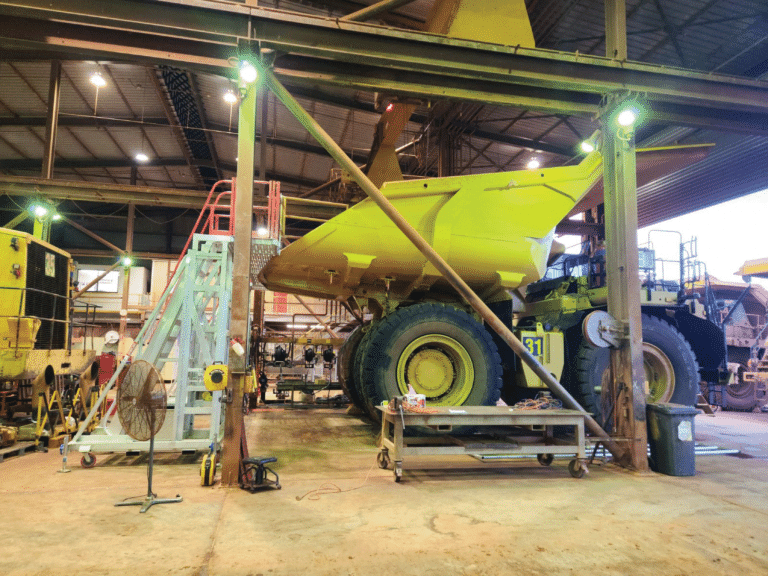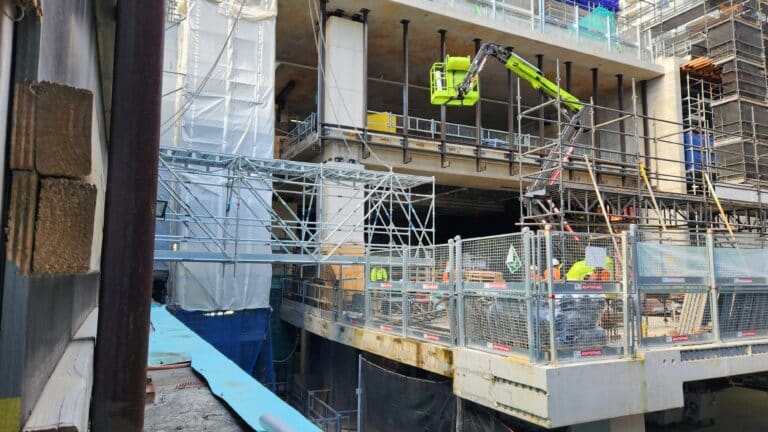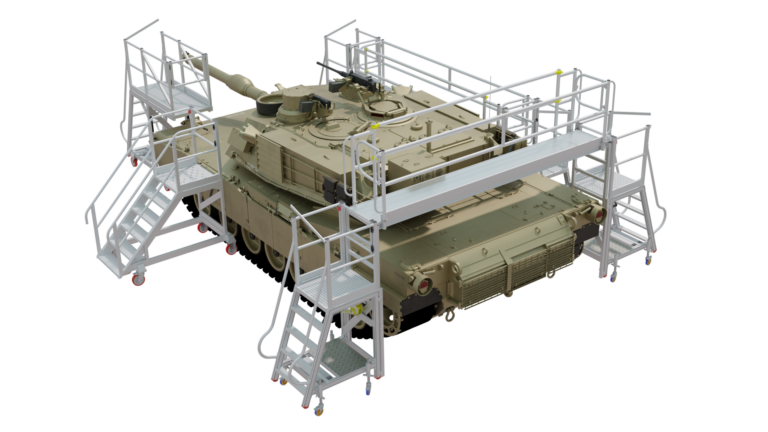Maximizing Efficiency on Site: The Role of Temporary Mezzanine Stairs in Construction
Temporary mezzanine stairs offer a flexible and efficient solution for accessing elevated spaces in various settings, such as warehouses, retail environments, and event venues. This comprehensive guide delves into the essential aspects of temporary mezzanine stairs, including their design, benefits, safety considerations, installation process, and maintenance.
What are Temporary Mezzanine Stairs?
Temporary mezzanine stairs are portable stair solutions designed for temporary access to elevated platforms, mezzanine floors, or between different levels of a construction site. Characterised by their durability and ease of installation, these stairs are typically constructed from robust materials like steel or aluminium and are designed to withstand the rigours of a construction environment. Key features often include non-slip treads, adjustable heights, handrails for added safety, and folding stairs for mezzanine.
Applications of Temporary Mezzanine Stairs in Construction and Refurbishment
These stairs are invaluable in various project phases, from initial construction to final touches in refurbishment before a mezzanine staircase is installed. They provide safe and efficient access to mezzanine levels, scaffolding, elevated work areas, and between different floors in multi-level structures.
In refurbishment projects, where permanent staircases may be under construction or renovation, temporary mezzanine stairs ensure continuity of work without compromising safety or accessibility.
Safety Standards and Compliance
Adhering to safety standards is non-negotiable in construction and refurbishment projects. Temporary mezzanine stairs must comply with Australian Standards. These standards cover aspects like load capacity, stair dimensions, railings, and slip resistance, ensuring a safe working environment for all personnel on-site. More specifically, temporary stairs need to be compliant with AS/NZS 1657 standards.
Compliance with these standards not only promotes safety but also shields companies from legal and financial repercussions associated with workplace accidents.
Enhancing Productivity with Temporary Mezzanine Stairs
Beyond safety, temporary folding stairs for mezzanines significantly enhance productivity. They provide quick and easy access to different work areas without impacting on floor space. While reducing the time and effort workers spend moving around the site. This improved accessibility leads to smoother workflows, faster completion of tasks and, ultimately, a more efficient project timeline.
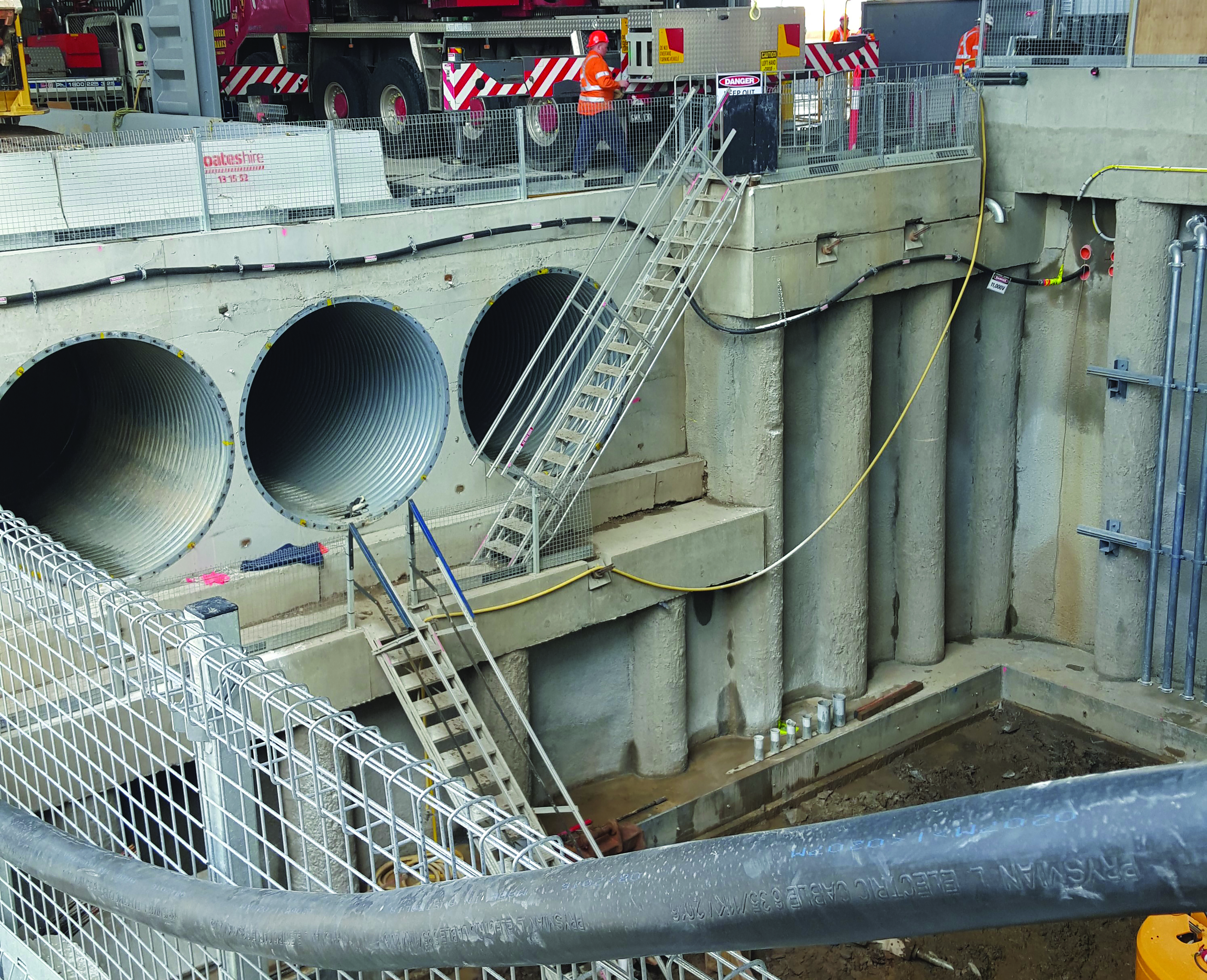
Complex Mezzanine Access
During construction, there can be scenarios where temporary mezzanine access is required like this sump access stairway that has been created.
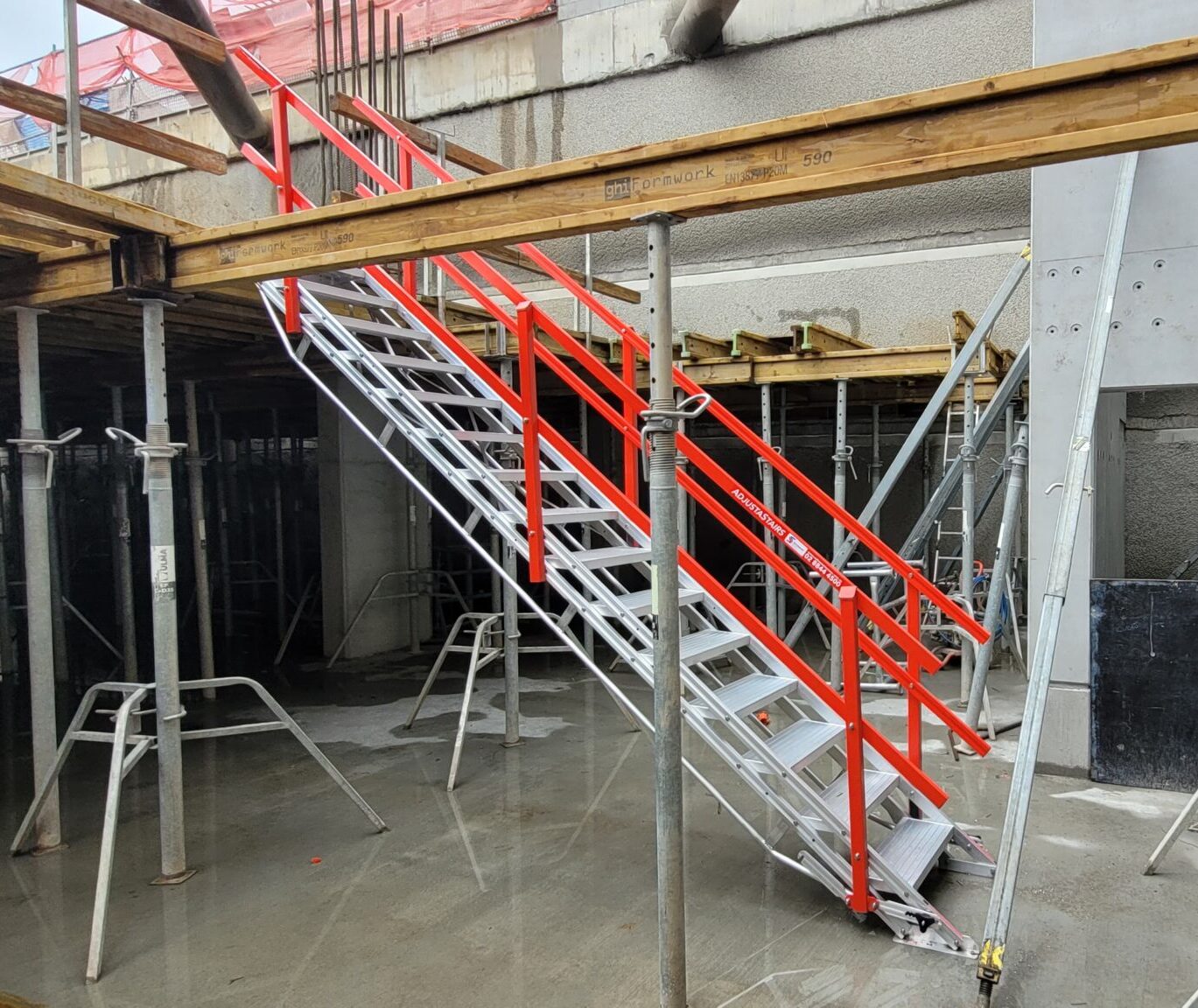
Accessing Formwork
Not a typical mezzanine scenario but an all too common occurrence during building construction.
Choosing the Right Temporary Mezzanine Stairs
Selecting the appropriate stairs for your project involves several considerations:
- Material: Choose materials that offer the right balance between durability and portability. Stainless Steel, steel, and aluminium are popular choices
- Design: Look for features like adjustable heights and modular designs that can adapt to various site conditions.
- Load Capacity: Ensure the stairs can safely support the weight of workers and any equipment they carry.
- Customisation: Consider stairs that can be customized to meet the specific requirements of your project, like varying platform heights or spatial constraints.
- Ease of Assembly and Disassembly: For swift setup and removal without hampering site operations.
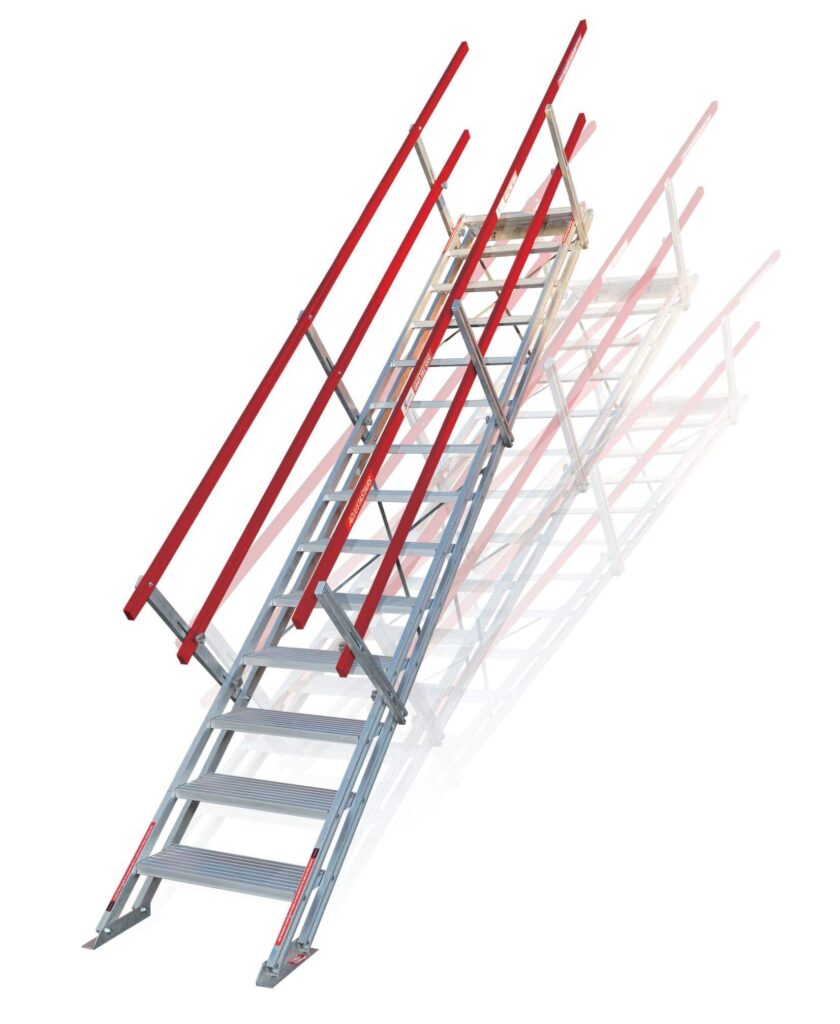
Product Spotlight: Adjustastairs Portable Stairs
- Adaptability and Flexibility: These portable stairs can be adjusted for varying heights, making them suitable for a diverse range of projects.
- Durability: Constructed with high-grade materials, they offer longevity and resilience in challenging site conditions.
- Safety Compliance: Aligning with rigorous safety standards, these stairs feature stable platforms, secure railings, and anti-slip surfaces.
- Ease of Use: Their design prioritizes easy assembly and disassembly, facilitating swift setup and removal without disrupting site operations.
- Various Sizes: Many of our options include a range of steps and variable heights you can access.
Cost Considerations
Cost-Benefit Analysis
Investing in temporary mezzanine stairs should be viewed through the lens of long-term value. While the initial cost might be a significant factor, companies need to consider the savings in terms of reduced labor costs, decreased time on projects, and the potential for reuse in future projects. A comprehensive cost-benefit analysis will take into account these factors, offering a clearer picture of the investment’s value over time.
Tips for Cost-Effective Selection and Use
To maximise the cost-effectiveness of temporary mezzanine stairs, companies should:
- Assess the full scope of project needs to determine the appropriate stair specifications.
- Consider renting versus purchasing based on project duration and frequency of use.
- Look for versatility in design for potential reuse in future projects.
- Ensure proper maintenance to extend the lifespan of the stairs.
Vendor Selection and Procurement
How to Choose the Right Supplier
Selecting the right supplier is crucial for ensuring quality, compliance, and value. Key factors to consider include:
- The supplier’s reputation and track record in the industry.
- Compliance with safety standards and quality certifications.
- The range of products and their adaptability to different projects.
- Customer service and support, including after-sales service and technical assistance.
Procurement Best Practices
Effective procurement practices involve:
- Conducting thorough market research to identify potential suppliers.
- Requesting and comparing detailed quotes to ensure competitive pricing.
- Evaluating the total cost of ownership, including maintenance and potential resale value.
- Establishing clear contracts that outline expectations, delivery schedules, and warranty terms.
Conclusion
In the fast-paced and ever-evolving landscape of construction and refurbishment, temporary mezzanine stairs like those offered by SafeSmart Access play a pivotal role. They are not just a means of ensuring safe and efficient access across various levels but are also a testament to the advancements in safety, design, and environmental consciousness in construction equipment.
The key features of SafeSmart Access’s Portable Stairs — including their customisable height, robust construction, advanced safety features, efficient assembly, eco-friendliness, and versatility — exemplify the ideal qualities sought in temporary access solutions. These stairs not only meet the immediate practical needs of a project but also align with broader considerations such as long-term cost-effectiveness, environmental responsibility, and compliance with safety standards.
As the construction industry continues to grow and adapt, the importance of choosing the right equipment cannot be overstated. Temporary mezzanine stairs are a crucial component in this regard, offering flexibility, safety, and efficiency on-site.
Seeking Further Assistance
For companies and professionals looking to explore temporary mezzanine stair solutions further, seeking expert advice is a wise step. SafeSmart Access, with their expertise and a wide range of products, stands ready to assist in selecting the right temporary access solutions for your project needs.
